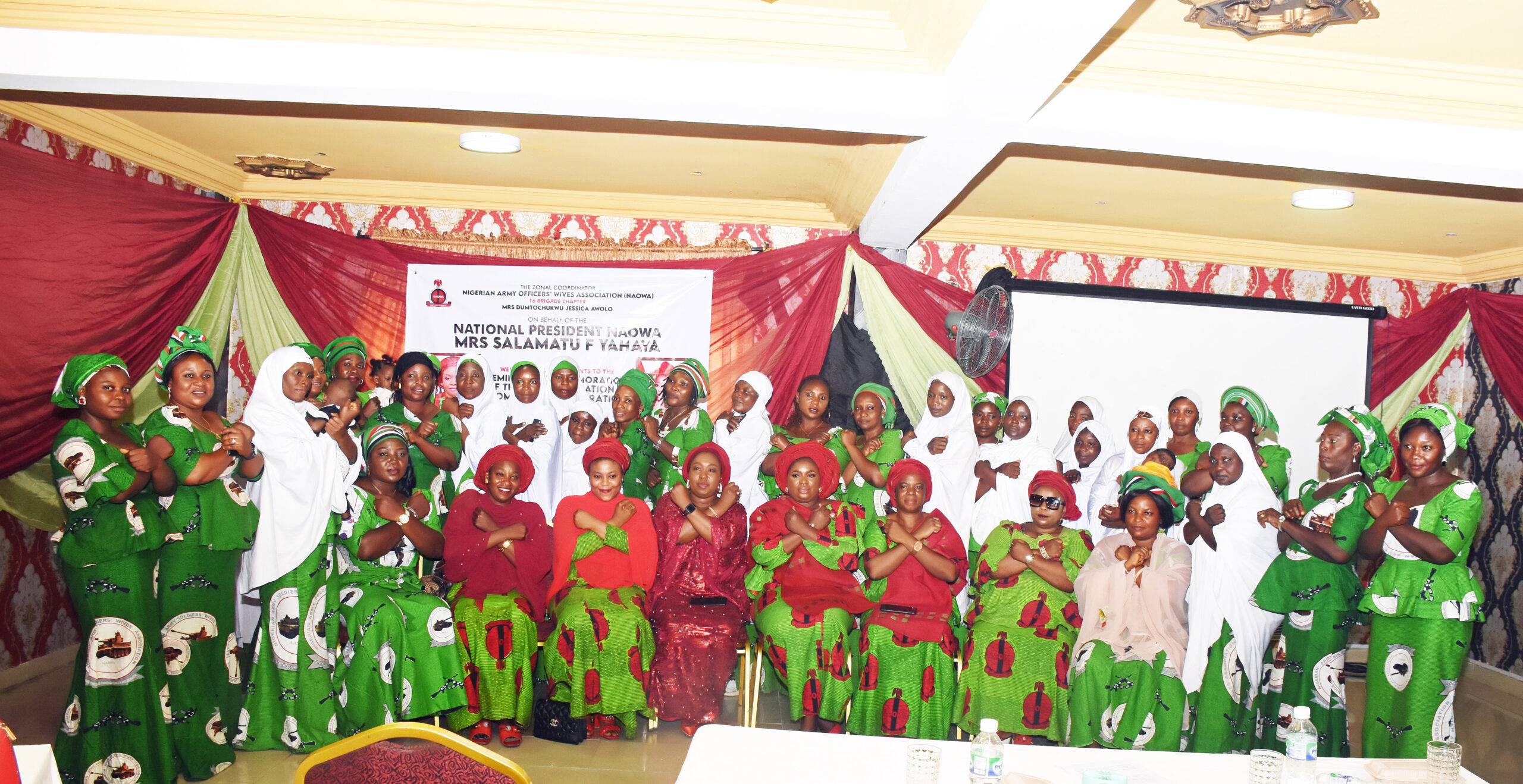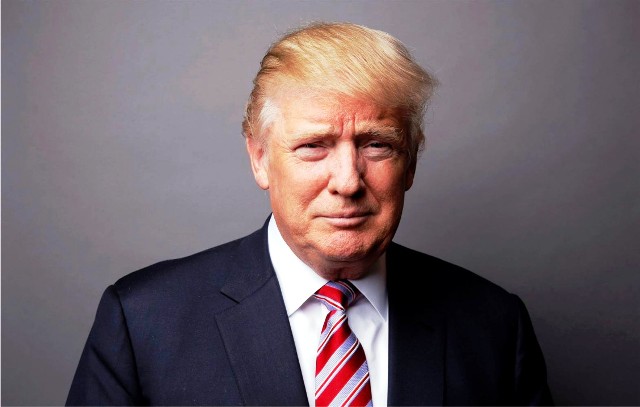Editorial
Advancing The Cause Of Women (2)

Despite signing relevant international instruments, treaties, and conventions emphasising the neces-
sity for member nations to institute all the essential mechanisms needed to eliminate gender discrimination, ensure equality and human dignity to all, men and women, Nigeria is among the countries that record low participation of women in politics, appointments, and government positions.
Since 1999, the onset of Nigeria’s Fourth Republic, no woman has been elected as civilian governor of a state, which is a zero per cent for gender inclusion in leadership at the sub-national level. The closest was when Mrs Virginia Etiaba served as Acting Governor of Anambra State after her principal, Senator Chris Ngige, was impeached. Thereafter, neither Anambra State nor any other state has voted for a woman into that office.
However, as a government’s premeditated policy to intensify women’s participation in the scheme of things and decision-making process in Rivers State, Governor Nyesom Wike has been embarking on a crusade for affirmative action for the greater inclusion of women in politics, particularly in the state.
Dr Ipalibo Harry Banigo’s current position as deputy governor is one of the results of his active engagement of women in politics and their appointments into varied offices. Wike’s ardour for women to assume leadership positions since his assumption of office on May 29, 2015, has been legendary, not a familiar route that his contemporaries would love to take.
The Rivers State Government is very gender-sensitive and friendly. The affairs of women in the state are not taken for granted. That is the reason issues about the female gender are always on the front burner. For the first time in the history of the state, Wike set a record in women’s involvement, not only with the first female deputy governor but the first female Senator, Betty Apiafi (Rivers West).
All vice chairpersons in the 23 local government councils with one as substantive chairman are females. Also included are six female councillors in each council, five commissioners and many permanent secretaries. The governor appointed the first female Chief Judges (Daisy Okocha and Adanma Lamikanra) and President, Customary Court of Appeal. There are several other appointments of women as directors or heads of departments and agencies.
The immediate past Chief Judge of Rivers State, Lamikanra, was appointed despite sentiments expressed against her selection. Wike promptly dismissed the prejudices levelled against her because of her non-indigene status and recommended her for the office. No doubt, the governor’s inclination to the advancement of equity flows from his experience as a lawyer and as a life bencher.
At a civic reception held in his honour by the Ekpeye Ethnic Nation last Saturday, Wike further demonstrated the favourable disposition of his government to women’s inclusion in governance by urging women to use yesterday’s women’s day occasion to protest against the unfriendly gender policy of the Federal Government. Women must heed the governor’s call and demand their legislative rights steadily.
We congratulate the governor for publicly acknowledging the strength of women and foresight on the significance of practising an inclusive government that will serve as a template for years to come. Women should, therefore, be committed and dedicated in their support for the state government to boost and foster their interests.
We urge President Muhammadu Buhari to borrow a leaf from Governor Wike, an attested advocate of gender parity, and better his poor record of gender inclusion at the federal level. Shamefully, Buhari’s appointment of seven women as ministers out of 42 signifies a continued denial to women the right to participate and contribute appropriately to nation-building.
The spurning of the five bills seeking gender equality by the National Assembly should be countermanded. It is excruciating that the federal lawmakers denied women the opportunity of inclusion and representation in governance by voting against the bills. The legislators must realise the need to legislate on the National Gender Policy that was formulated to facilitate 35 per cent affirmative action.
The many obstacles still restricting women in Nigeria must be dealt with. It is reported that 35 per cent of them have experienced gender-based violence. This implies that one in every three Nigerian women has suffered physical and sexual violence. According to the 2018 Nigeria Demographic and Health Survey, 31 per cent of women between ages 15 and 49 have experienced physical violence while 9 per cent have suffered sexual violence or rape.
Additionally, 36 per cent of married Nigerian women have undergone spousal violence. Nigeria also has a pervasiveness of female genital mutilation; at least 20 per cent of the women between ages 15 and 49 were circumcised as of 2018. Forced early marriage is also ubiquitous. Drivers of violence against women in Nigeria such as social norms, economic stress, family relations, patriarchal beliefs, and targeted assertions against female autonomy have to be checked.
Gender-based violence has been a long-standing issue, and millions of Nigerian women have experienced the worst of it. Through the government’s partnership with non-governmental organisations, professional associations like Federation of Female Lawyers (FIDA); National Association of Women Journalists (NAWOJ); activists, and stakeholders, the existing advocacy framework will be expanded and deepened. Nigeria must take seriously the issue of gender inclusion in governance at all levels.
Editorial
New Federal Varsity In Ogoni

President Bola Ahmed Tinubu has made history by signing into law a bill that establishes the Federal Univer-
sity of Environment and Technology in Ogoni, Rivers State. This significant occasion marks a bold step forward not only for the Ogoni people but also for the Niger Delta region and Nigeria as a whole. It signifies a commitment to education, environmental sustainability, and technological advancement.
For the Ogonis, who have long been impacted by environmental challenges, the university represents a beacon of hope. It is more than just bricks and mortar; it is a symbol of empowerment and a pathway to a brighter future. This development is akin to a seed, planted with the promise of a flourishing harvest of skilled professionals.
The university’s emphasis on environmental technology is extremely important, especially given Nigeria’s climate crisis. Education plays a crucial role in developing sustainable solutions. The institution will provide students with the necessary skills and knowledge to address the environmental challenges affecting the Niger Delta region and beyond. This will have a momentous impact.
Signing the bill, the President praised the Ogoni people’s resilience and unity. He stressed that the institution would mark a “significant milestone in our national journey towards environment justice, education and sustainable development”. Tinubu said the university is a reaffirmation of his administration’s “unwavering commitment to the people of Ogoni, the Niger Delta and the nation as a whole. For decades, the Ogoni people have been at the forefront of fight for environmental restoration and sustainable development, shaping both national and global conversation of these critical issues.
“By signing this bill into law, we are taking a decisive step towards addressing historical grievances and creating new opportunities for learning, growth and prosperity. The university will serve as a centre of excellence, equipping young Nigerians with the knowledge and skill to tackle present environmental challenges, drive clean energy solutions and contribute to our national sustainable economic development.”
We commend President Tinubu for his visionary decision to establish the much-needed institution aimed at fostering development and progress. This initiative is a testament to his commitment to addressing critical social and economic knots and creating opportunities that will benefit the people. The President has laid a solid foundation for sustainable growth while demonstrating a genuine desire to empower and advance the nation’s collective interests.
In addition to his commendable action, we applaud Tinubu for initiating peace talks to bring stability and reconciliation to the troubled area. The decision to engage in constructive dialogue demonstrates a deep understanding of the relevance of inclusive governance and the role of peace in fostering meaningful development. For decades, Ogoni has endured turmoil and neglect, impeding its potential and the return of oil exploration activities.
By opening the door to peaceful negotiations, the President has made a bold and necessary move towards healing fractured relationships and fostering trust among stakeholders. This initiative holds the promise of ensuring that the voices and needs of the Ogonis are heard and respected. We urge all parties involved to seize this golden opportunity for lasting peace and progress. It is only through unity and mutual respect that the full potential of Ogoni, and by extension the nation, can be realised.
As steps are taken to acknowledge and remediate the damage caused by years of oil exploration and production, the Ogonis must reciprocate Mr. President’s gesture by fostering a climate of equanimity and stability. This will ultimately pave the way for the resumption of oil exploration and production. This is not a call to forget the past, but a pragmatic recognition that meaningful change and sustainable development require a collaborative approach.
The Federal Government has a responsibility to ensure that all academic disciplines offered by the new university are fully accredited to maintain the integrity and quality of the school. Without proper accreditation, the institution risks producing graduates who are ill-equipped to compete in the global workforce or contribute substantially to national development. Accreditation serves as a benchmark that ensures programmes meet academic standards and adhere to best practices across various fields of study.
Staff recruitment should be conducted carefully, as the individuals brought into a team can greatly influence an organisation’s performance, culture, and long-term success. The primary focus of recruitment efforts at the university should be on attracting the best candidates who possess the necessary skills, qualifications, experience, and values. Merit should be the guiding principle in decision-making throughout the hiring process, rather than favouritism or personal bias.
For a nation to thrive in the 21st century, a strong higher education system is not only desirable, but essential. Universities serve as the catalysts for innovation, the breeding grounds for future leaders, and the foundations of a knowledge-based economy. The Federal Government must acknowledge this vital role and take intentional actions to properly fund the university in Ogoni and develop infrastructure to ensure it meets international standards. Neglecting this responsibility would put its future prosperity and global competitiveness at risk.
This institution must not suffer the same fate as other federally-owned universities that have been left to decay. That will be a disservice to its purpose and potential. Many government-owned universities in the country have struggled with dilapidated infrastructure, underfunding, insufficient staffing, and interruptions caused by industrial actions due to unpaid wages or poor working conditions. These challenges have led to declining standards in education, putting both students and staff at a disadvantage. The Ogoni University must not be another victim of this worrying trend.
Editorial
HIV, Transiting From Donor Dependence

The initial announcement by United States President, Donald Trump, to cut funding for international
HIV/AIDS initiatives sent shockwaves through the global health community. In Nigeria, a country facing a significant HIV/AIDS burden, the potential consequences were dire. However, the subsequent waiver granted by the administration has provided a lifeline for the millions of Nigerians who rely on the President’s Emergency Plan for AIDS Relief (PEPFAR) for their treatment and support.
PEPFAR has been an important partner in Nigeria’s fight against HIV/AIDS. Since its inception in 2003, PEPFAR has committed more than $7.8 billion to the country, catering to approximately 90 per cent of HIV treatment requirements. With this funding, Nigeria has been able to enhance its HIV prevention, treatment and support services and has witnessed a reduction in HIV/AIDS deaths.
The waiver granted by the Trump administration guarantees that PEPFAR’s life-saving medicines and medical services will continue to reach the needy. Antiretrovirals (ARVs) are the most common type of medicine used to treat HIV and reduce the virus’ spread. Through the provision of ARVs, PEPFAR helps prevent the spread of HIV and enhances the quality of life of those with the condition.
Although Nigeria was recently exempted from the requirement, the signs are evident: the country has to graduate from dependence on donor funds for its HIV/AIDS control programmes. Over the years, partners including the U.S. government have been central to the provision of treatment to people living with the virus. However, it is time for Nigeria to own its national response to HIV/AIDS.
Nigeria’s HIV/AIDS burden remains critical, accounting for 10 per cent of the global total. In 2023 alone, there were 75,000 new infections and 45,000 HIV-related deaths. The battle against Mother-to-Child Transmission remains challenging, with only 35 per cent of the target 75 per cent being met. Nearly 1.7 million Nigerian children have been orphaned due to HIV. Vulnerable populations, especially women and children, continue to disproportionately suffer.
To transition away from donor dependence, a multifaceted approach is necessary. Firstly, the country must increase its domestic financing for HIV/AIDS programmes. This can be accomplished through innovative funding mechanisms, such as leveraging public-private partnerships and exploring local revenue sources. Secondly, the government needs to strengthen its healthcare system to ensure equitable access to testing, treatment, and care. This involves expanding access to antiretroviral drugs, investing in community-based models, and addressing the stigma associated with HIV.
Thirdly, Nigeria must prioritise prevention efforts. This entails promoting condom use, providing comprehensive sexual education, and increasing awareness about the risks and modes of transmission. By focusing on prevention, the country can decrease the incidence of HIV infections and ultimately lessen the burden on its healthcare system.
Finally, Nigeria should develop a sustainable human resource strategy for its HIV/AIDS response. This involves training and equipping healthcare workers, engaging community volunteers, and empowering people living with HIV to advocate for their rights. A well-trained workforce is essential for delivering high-quality services and ensuring the long-term success of the response.
The transition beyond donor dependence is a complex but necessary journey for the country. By increasing domestic financing, strengthening healthcare systems, prioritising prevention, and investing in its human resources, the country can create a sustainable and effective response to HIV/AIDS. Also, the government should consider alternative funding mechanisms, such as increased domestic funding, public-private partnerships, and philanthropic initiatives. The time to act is now, for the well-being of present and future generations.
Nigeria’s National Agency for the Control of AIDS (NACA) has made momentous strides in combating HIV/AIDS, including expanding access to testing, treatment, and education. However, challenges persist, hindering the effectiveness of these efforts.
One major obstacle is limited access to healthcare facilities, particularly in rural areas. This impedes timely diagnosis and treatment, reducing the likelihood of optimal outcomes for those living with HIV. Additionally, stigma surrounding the disease remains a formidable barrier, preventing individuals from seeking testing and care. Inadequate awareness campaigns further contribute to low testing rates and delayed diagnosis.
Addressing these challenges requires concerted action by the government and stakeholders. Allocation of adequate funding is crucial to expand healthcare infrastructure and ensure the availability of essential services. Moreover, targeted interventions to reduce stigma and promote awareness are vital for increasing testing and early detection.
Collaboration between civil society organisations and grassroots movements is also essential for advocating for protection of HIV funding. Advocacy campaigns can mobilise public support and pressure lawmakers to prioritise the fight against HIV/AIDS. By addressing these challenges and ensuring sustainable funding, Nigeria can depend less on donor countries, drastically reduce HIV transmission, and provide the necessary care to those affected by the disease.
Editorial
Israel-Gaza War: Sustaining The Ceasefire

-
News4 days ago
Shake-ups At Federal Varsities As Tinubu Sacks UniAbuja, UNN VCs, Appoints New Leaders
-
Business4 days ago
Lokpobiri Condemns Abandoned Refinery Project in N’Delta … Vows Revival
-

 Politics1 day ago
Politics1 day agoProbe My Father With Clean Intent, El-Rufai’s Son Tells Kaduna Govt
-
Maritime1 day ago
NRC, APMT Plan Cargo Movement Expansion From Apapa To Ibadan
-
Business4 days ago
Dangote Refinery Exports Jet Fuel To Saudi Aramco
-

 Sports1 day ago
Sports1 day agoEdo Inaugurates Committee For Edo Sport Festival
-

 Oil & Energy1 day ago
Oil & Energy1 day agoNCDMB Targets 70% Local Content Policy Implementation By 2027
-
Rivers1 day ago
Don Proposes Group Matrix In Organisational Efficiency

